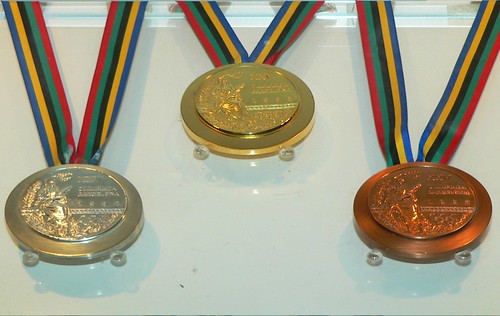Are Olympic Bronze medalists happier than Silver medalists?
.
Yes. Silver medal winners are more inclined to compare themselves to gold medal winners. Those who got the Bronze usually compare themselves to someone who didn’t get a medal at all:
Research on counterfactual thinking has shown that people’s emotional responses to events are influenced by their thoughts about “what might have been.” The authors extend these findings by documenting a familiar occasion in which those who are objectively better off nonetheless feel worse. In particular, an analysis of the emotional reactions of bronze and silver medalists at the 1992 Summer Olympics–both at the conclusion of their events and on the medal stand–indicates that bronze medalists tend to be happier than silver medalists. The authors attribute these results to the fact that the most compelling counterfactual alternative for the silver medalist is winning the gold, whereas for the bronze medalist it is finishing without a medal. Support for this interpretation was obtained from the 1992 Olympics and the 1994 Empire State Games. The discussion focuses on the implications of endowment and contrast for well being.
Source: “When less is more: counterfactual thinking and satisfaction among Olympic medalists.” from J Pers Soc Psychol. 1995 Oct;69(4):603-10.
Join over 190,000 readers. Get a free weekly update via email here.
Related posts:
How To Stop Being Lazy And Get More Done – 5 Expert Tips
6 Things The Most Productive People Do Every Day
New Harvard Research Reveals A Fun Way To Be More Successful




